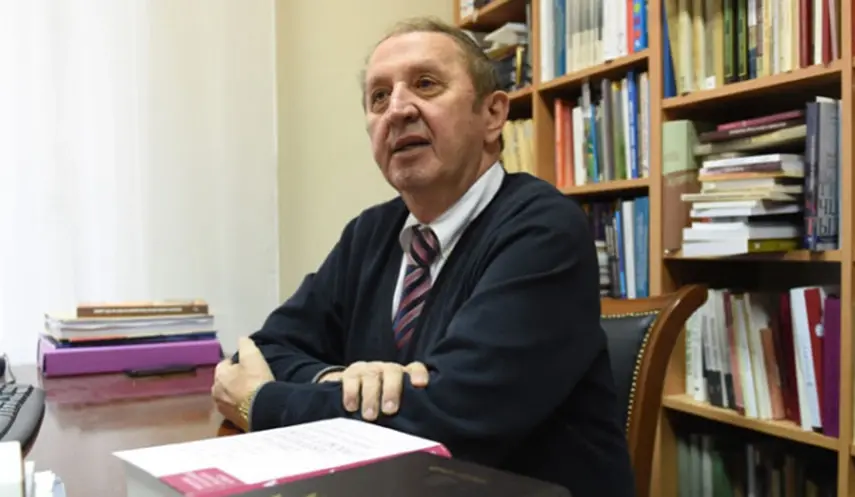TANASIĆ: SARAJEVO ONCE AGAIN FALSIFIES AND APPROPRIATES THE CHARTER OF KULIN BAN
FBiH - Serbia
08/30/2025
12:19

BELGRADE, AUGUST 30 /SRNA/ - The Chairman of the Committee for the Standardization of the Serbian Language, Sreto Tanasić, stated that Sarajevo is once again falsifying and appropriating the Charter of Kulin Ban, a copy of which was sent to Canadian museums and libraries, presenting it as a monument of the so-called "Bosnian" language and as proof of the "statehood of BiH."
"I expect the ministries of culture of Serbia and Republika Srpska to react immediately and decisively, and to officially inform the relevant institutions and ministries of Canada that this is a blatant falsification of facts," Tanasić said in a written statement for SRNA.
He emphasized that the laws on language and script in Serbia and Republika Srpska explicitly stipulate the obligation to preserve Serbian written heritage from falsification and appropriation, a duty reinforced especially by the Declaration on the Protection of the National and Political Rights and the Shared Future of the Serbian People.
Tanasić points out that the Charter of Ban Kulin is the first preserved, complete written document in the Serbian vernacular and was created a full 800 years before the formation of present-day BiH.
"This is a document that the Bosnian Ban Kulin sent to the Dubrovnik knez Krvaš /Gervasius/ in 1189. The document has been preserved in three copies. It is believed that the original copy is the one kept in Saint Petersburg. The charter was written in Latin and in Serbian – using Cyrillic, which at that time was the official script of the Serbian language in medieval Bosnia," Tanasić stated.
"Ban Kulin’s Charter begins with ‘In the name of the Father, the Son, and the Holy Spirit.’ This is also how the ban ends it – on Eastern Christian spiritual foundations, upon which the Serbian cultural pattern was built, invoking God and holding the holy Gospel, which is a formula also found in other Serbian written monuments of that period," Tanasić emphasized.
As Tanasić points out, to the diligent Bosniak falsifiers, this seems unsuitable, so they often omit these parts.
Tanasić emphasizes that at the time of Kulin Ban, there was no state called BiH; rather, Kulin was the ban of the Bosnian state, which was a medieval Serbian state of the Serbian people and the Serbian language.
A year before the creation of this charter, Tanasić notes, in 1188, in a letter to the Archbishop of Dubrovnik, the Pope referred to Bosnia as a Serbian kingdom, and Bosnia is called as such in a series of papal charters between 1187 and the mid-13th century.

SERBS IN TEARS AND FEAR OVER OWNERSHIP OF ORTHODOX CEMETERIES AND CHURCHES

CVIJANOVIĆ DEMANDS ACCOUNTABILITY FOR SHAMEFUL CONCERT IN ŠIROKI BRIJEG

OSTOJIĆ URGES BiH AND EU TO ACT OVER GLORIFICATION OF FASCIST IDEOLOGIES





